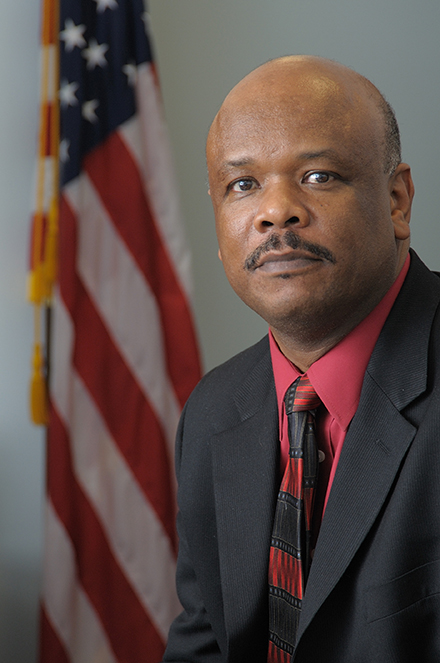Alfred Johnson

Power Words
Where were you born?
Alabama
What school did you attend?
Albany State University, Albany, Georgia University of Tennessee, Knoxville, Tennessee
What IC do you work for?
The Office of the Director (OD)
How many years have you worked at the NIH?
33 years
What gained you interest in the NIH?
My doctoral graduate work was in molecular biology and I was interested in applying what I learned to cancer research. The NIH was known as a great place to train as a biomedical researcher and the National Cancer Institute was a great place to start a cancer research career.
What kind of work do you do at the NIH?
I began my career at NIH as a postdoctoral research fellow and moved up to a principal investigator before transitioning to an administrative management career. I am currently a member of the Senior Executive Services and have the responsibility to oversee a portfolio of services that support the NIH research mission. I direct the Office of Research Services whose mission is to provide responsive and dependable support to the NIH research mission by planning, directing and delivering scientific and regulatory activities, public safety, security, and services to enrich the NIH community.
What message would you like to send to young Blacks who are considering going to college?
College is a stepping stone that can open doors for careers in many areas. In today's society it is imperative that you complete your college education so that you can be competitive in the job market which has become an international marketplace.
Why did you choose to pursue a career in research?
I had an interest in science from a very early age and trying to understand how biological systems work was intriguing. I saw a research as a way to not only get a better understanding of biological systems but also as a way to contribute to that understanding.
What would you say is your most significant contribution to science or medicine?
I identified and cloned a molecule termed GC-binding factor 2 (GCF2), also termed LRRFIP1/GCF2, which has been implicated in the causes of several pathological states and/or the responses to them, such as inflammation and obesity, the wound healing process, and in cancers. GCF2 is a bioregulator in multidisciplinary systems of human body and its dysregulations cause diverse human diseases.
Regarding your career here at NIH, what accomplishment are you the most proud of?
I am most proud of the trainees, especially from underrepresented backgrounds, that I mentored and/or supported during my career. I benefited by very good mentoring and feel compel to give that back by paying it forward.




